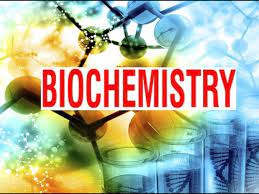Ph.D. in Chemistry and Biochemistry: Introduction, Admission, Registration, Eligibility, Duration, Fees, Syllabus 2024

Introduction:
Chemistry and Biochemistry are two strands of science that intertwine to explain the fundamental processes of life at a molecular level. A Ph.D. in Chemistry and Biochemistry is an exploration into this intricate dance of molecules, where chemical reactions underpin biological functions. It’s a path that leads to the core of life’s essence, offering insights into everything from the development of new drugs to the preservation of our environment.
Admission Process:
- Application: Submission of a comprehensive application, including academic records, a statement of purpose, and reference letters.
- Entrance Exams: GRE or equivalent tests, with a focus on chemistry and biology sections.
- Interviews: In-depth discussions with faculty members to assess the candidate’s fit for the program.
- Research Proposal: A proposal that outlines the candidate’s research interests and potential contributions.
Eligibility:
- Master’s Degree: In chemistry, biochemistry, or a related field with a commendable academic record.
- Laboratory Experience: Extensive laboratory experience, preferably with published research.
- Coursework: Completion of advanced coursework in both chemistry and biology.
- Recommendation Letters: Strong endorsements from academic or professional mentors.
- Research Proposal: A well-articulated research proposal demonstrating the candidate’s research capabilities.
- Academic Fit: Alignment of the candidate’s research interests with the department’s expertise.
Completion Time:
The completion time for a Ph.D. in Chemistry and Biochemistry can range from 4 to 7 years, depending on the nature and scope of the research.
Career Opportunities:
- Biotechnologist: Innovate in the field of genetic engineering and molecular biology.
- Pharmaceutical Chemist: Develop new medications and therapeutic treatments.
- Academic Researcher: Conduct research and teach at universities.
- Forensic Scientist: Apply chemical knowledge to legal investigations.
- Environmental Chemist: Work on solutions to combat environmental pollution.
- Consultant: Provide specialized knowledge to industries and government agencies.
Syllabus:
- Molecular Biology: Understanding the molecular basis of biological processes.
- Organic Chemistry: Advanced study of the structure, properties, and reactions of organic compounds.
- Biochemical Techniques: Mastery of techniques for studying biological systems.
- Physical Chemistry: Exploring the physical principles that govern chemical systems.
- Enzymology: Study of enzymes and their role in biochemical reactions.
- Structural Biology: Analysis of molecular structures and their correlation with function.
Internship Opportunities:
- Research Institutes: Engage in cutting-edge research projects.
- Pharmaceutical Companies: Experience the drug development process.
- Government Laboratories: Contribute to public sector research initiatives.
- Non-Profit Organizations: Work on projects with societal impact.
- Startups: Be part of innovative teams in biotech and chemtech.
- International Labs: Gain global experience and perspectives.
Scholarships and Grants:
- Academic Scholarships: Merit-based awards for outstanding students.
- Research Assistantships: Funding in exchange for assisting with research projects.
- Industry Partnerships: Scholarships sponsored by companies with vested interests in research.
- Government Fellowships: Public funding for research with potential impact.
- Conference Grants: Support for presenting research at international conferences.
- Diversity Grants: Awards aimed at promoting diversity in the scientific community.
FAQs:
What synergies exist between chemistry and biochemistry in a Ph.D. program?
The synergy lies in understanding how chemical principles drive biological systems, leading to a holistic view of molecular science.
How important is interdisciplinary research in this field?
Interdisciplinary research is crucial, as it allows for the integration of diverse scientific perspectives.
What are the laboratory requirements for a Ph.D. in Chemistry and Biochemistry?
Extensive laboratory work is a cornerstone of the program, with a focus on both chemical and biological techniques.
Can I pursue a career outside academia with this Ph.D.?
Absolutely, the skills acquired are highly valued in various industries, including pharmaceuticals, biotechnology, and environmental science.
What is the potential impact of research in Chemistry and Biochemistry?
Research can lead to breakthroughs in healthcare, environmental sustainability, and the development of new materials and technologies.
